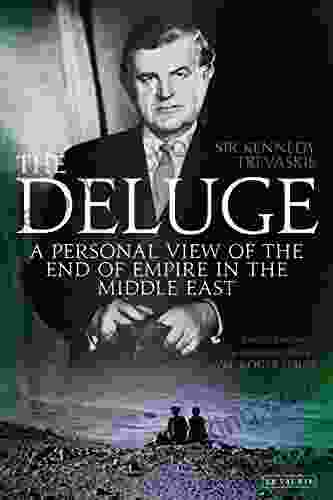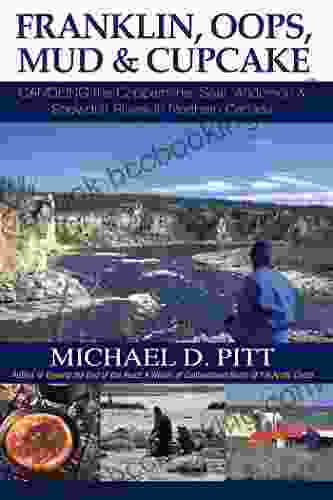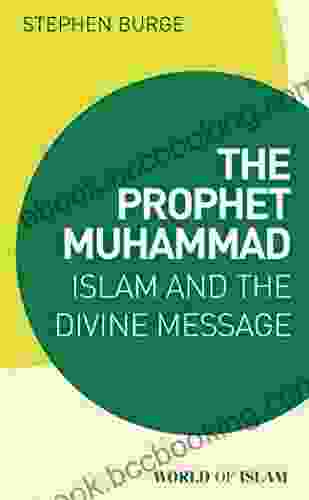A Personal View of the End of Empire in the Middle East

By John Bull

4.8 out of 5
| Language | : | English |
| File size | : | 4491 KB |
| Text-to-Speech | : | Enabled |
| Screen Reader | : | Supported |
| Enhanced typesetting | : | Enabled |
| Word Wise | : | Enabled |
| Print length | : | 436 pages |
In 1956, I was a young man of twenty-two, fresh out of university and eager to see the world. I had always been fascinated by the Middle East, and when I was offered a job as a junior correspondent for The Times in Cairo, I jumped at the chance. Little did I know that I was about to witness the end of an era.
The British Empire was at its peak in the early 20th century. It controlled a vast swath of territory from the Mediterranean to the Indian Ocean, and its influence was felt throughout the world. But the seeds of its decline had already been sown. The First World War had weakened the empire both economically and militarily, and the rise of nationalism in the colonies had made it increasingly difficult to maintain control.
The Suez Crisis of 1956 was a watershed moment in the history of the British Empire. In the wake of the crisis, Britain was forced to withdraw its troops from Egypt, and its influence in the Middle East began to decline. The Suez Crisis also marked the beginning of a new era of Arab nationalism, which would eventually lead to the independence of most of the Arab countries.
I was in Cairo during the Suez Crisis, and I witnessed firsthand the events that unfolded. I saw the British troops being evacuated, and I saw the Egyptian people celebrating their newfound independence. It was a time of great change and upheaval, and it was clear that the old Free Download was passing away.
In the years that followed the Suez Crisis, I continued to report on the Middle East. I covered the Six-Day War in 1967, the Yom Kippur War in 1973, and the Iranian Revolution in 1979. I saw the rise of Saddam Hussein in Iraq, the collapse of the Soviet Union, and the rise of Islamic extremism. Throughout it all, I witnessed the continued decline of the British Empire and the rise of a new world Free Download.
In this book, I have attempted to provide a personal and historical account of the end of British rule in the Middle East. I have drawn on my own experiences as a journalist, as well as the writings of other historians and experts. I hope that this book will help readers to understand the complex and fascinating history of the Middle East, and the role that Britain played in shaping its destiny.
Table of Contents
- Chapter 1: The Roots of Decline
- Chapter 2: The Suez Crisis
- Chapter 3: The Rise of Arab Nationalism
- Chapter 4: The Post-Suez Era
- Chapter 5: The Legacy of Empire
Chapter 1: The Roots of Decline
The British Empire reached its peak in the early 20th century. It controlled a vast swath of territory from the Mediterranean to the Indian Ocean, and its influence was felt throughout the world. But the seeds of its decline had already been sown. The First World War had weakened the empire both economically and militarily, and the rise of nationalism in the colonies had made it increasingly difficult to maintain control.
One of the most important factors in the decline of the British Empire was the rise of nationalism in the colonies. After the First World War, many of the colonies began to demand independence. This was due in part to the fact that the war had exposed the weakness of the British Empire. It was also due to the fact that the colonies had been exposed to new ideas about self-determination and democracy.
The British government was initially reluctant to grant independence to its colonies. But after the Second World War, it became clear that the empire was no longer sustainable. In 1947, India and Pakistan were granted independence. This was followed by the independence of Burma, Ceylon, and Malaya. By the end of the 1960s, most of the British colonies had gained their independence.
Chapter 2: The Suez Crisis
The Suez Crisis of 1956 was a watershed moment in the history of the British Empire. In the wake of the crisis, Britain was forced to withdraw its troops from Egypt, and its influence in the Middle East began to decline. The Suez Crisis also marked the beginning of a new era of Arab nationalism, which would eventually lead to the independence of most of the Arab countries.
The Suez Crisis began in July 1956, when Egyptian President Gamal Abdel Nasser nationalized the Suez Canal. The British government, which had been heavily dependent on the canal for its oil supplies, was furious. It launched a military operation to seize control of the canal, but it was forced to withdraw after the United States and the Soviet Union threatened to intervene.
The Suez Crisis was a major humiliation for Britain. It showed that the empire was no longer able to maintain control of its former colonies by force. It also showed that the United States was now the dominant power in the Middle East.
Chapter 3: The Rise of Arab Nationalism
The Suez Crisis marked the beginning of a new era of Arab nationalism. Arab nationalism is a political ideology that emphasizes the unity of the Arab world. It seeks to create a single Arab state, or at least to unite the Arab countries into a confederation.
Arab nationalism was a major force in the Middle East in the 20th century. It was inspired by a number of factors, including the decline of the British Empire, the rise of the United States as a superpower, and the growth of pan-Arabism. Pan-Arabism is a movement that seeks to unite all of the Arab countries into a single political entity.
The rise of Arab nationalism led to the independence of most of the Arab countries. In 1961, Syria, Egypt, and Iraq formed the United Arab Republic. This was followed by the independence of Algeria, Morocco, Tunisia, and Sudan. By the end of the 1960s, most of the Arab countries had gained their independence.
Chapter 4: The Post-Suez Era
The post-Suez era was a period of great change and upheaval in the Middle East. The British Empire had collapsed, and the United States had emerged as the dominant power in the region. The Arab countries had gained their independence, but they were still struggling to find their place in the world.
One of the most important events of the post-Suez era was the Six-Day War of 1967. In this war, Israel defeated Egypt, Jordan, and Syria. The war led to the Israeli occupation of the West Bank, the Gaza Strip, and the Sinai Peninsula. It also led to the displacement of hundreds of thousands of Palestinians.
The Six-Day War was a major turning point in the history of the Middle East. It showed that Israel was a major military power, and it led to the decline of Arab nationalism. It also led to the rise of Palestinian nationalism, which would eventually lead to the creation of the Palestinian Authority.
Chapter 5: The Legacy of Empire
The British Empire had a profound impact on the Middle East. It introduced Western ideas and institutions to the region, and it helped to shape the political and economic development of the Middle Eastern countries. But the empire also left a legacy of division and conflict.
One of the most important legacies of the British Empire is the division of the Middle East into separate states. This division was based on the arbitrary bFree Downloads that were drawn by the British government. It has led to a number of conflicts in the region, including the Arab-Israeli conflict and the Kurdish-Turkish conflict.
Another important legacy of the British Empire is the rise of religious extremism. In the post-Suez era, the Middle East has been plagued by religious extremism. This extremism has been fueled
4.8 out of 5
| Language | : | English |
| File size | : | 4491 KB |
| Text-to-Speech | : | Enabled |
| Screen Reader | : | Supported |
| Enhanced typesetting | : | Enabled |
| Word Wise | : | Enabled |
| Print length | : | 436 pages |
Do you want to contribute by writing guest posts on this blog?
Please contact us and send us a resume of previous articles that you have written.
 Book
Book Novel
Novel Page
Page Chapter
Chapter Text
Text Story
Story Genre
Genre Reader
Reader Library
Library Paperback
Paperback E-book
E-book Magazine
Magazine Newspaper
Newspaper Paragraph
Paragraph Sentence
Sentence Bookmark
Bookmark Shelf
Shelf Glossary
Glossary Bibliography
Bibliography Foreword
Foreword Preface
Preface Synopsis
Synopsis Annotation
Annotation Footnote
Footnote Manuscript
Manuscript Scroll
Scroll Codex
Codex Tome
Tome Bestseller
Bestseller Classics
Classics Library card
Library card Narrative
Narrative Biography
Biography Autobiography
Autobiography Memoir
Memoir Reference
Reference Encyclopedia
Encyclopedia Richard A Jaffe
Richard A Jaffe Terry Grigg
Terry Grigg Marc Maron
Marc Maron Wendy Pearlman
Wendy Pearlman Richard Blanco
Richard Blanco Mel Martinez
Mel Martinez Lynn Garafola
Lynn Garafola Tiffany Turner
Tiffany Turner Richard Thompson Ford
Richard Thompson Ford Matthew Hattersley
Matthew Hattersley Michael J Sandel
Michael J Sandel Peter Ross
Peter Ross Victoria Steele
Victoria Steele Masa Seikou
Masa Seikou Susanne Chishti
Susanne Chishti Nicole A Taylor
Nicole A Taylor Rick Brinkman
Rick Brinkman Russell Smith
Russell Smith Nate Crowley
Nate Crowley Mark Fainaru Wada
Mark Fainaru Wada
Light bulbAdvertise smarter! Our strategic ad space ensures maximum exposure. Reserve your spot today!
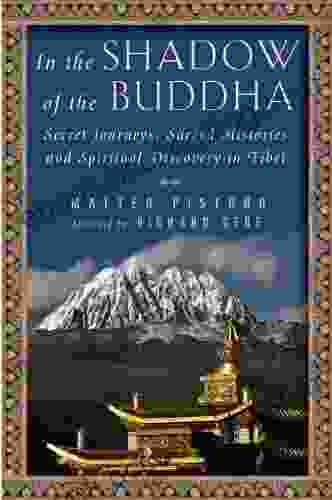
 Zachary CoxIn The Shadow Of The Buddha: An Unforgettable Journey of Self-Discovery and...
Zachary CoxIn The Shadow Of The Buddha: An Unforgettable Journey of Self-Discovery and... Alex FosterFollow ·4.4k
Alex FosterFollow ·4.4k Isaac AsimovFollow ·5.6k
Isaac AsimovFollow ·5.6k Michael SimmonsFollow ·8.1k
Michael SimmonsFollow ·8.1k Sidney CoxFollow ·9.4k
Sidney CoxFollow ·9.4k Forrest ReedFollow ·15.2k
Forrest ReedFollow ·15.2k Cristian CoxFollow ·18.1k
Cristian CoxFollow ·18.1k Travis FosterFollow ·7.9k
Travis FosterFollow ·7.9k Pablo NerudaFollow ·2.6k
Pablo NerudaFollow ·2.6k
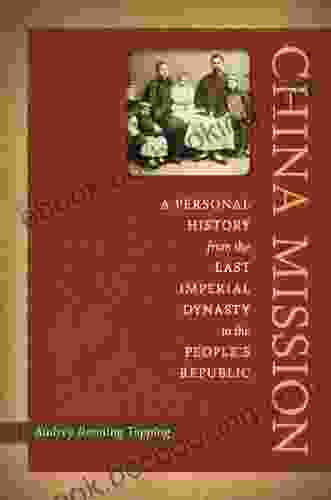
 Philip Bell
Philip BellPersonal History: From the Last Imperial Dynasty to the...
By Author Name A...

 Gustavo Cox
Gustavo CoxAlexander Csoma de Kőrös: The Father of Tibetology
Alexander...

 Harvey Bell
Harvey BellUnveiling the Titanicat: Dive into the True Stories...
A Literary Voyage into the...

 José Martí
José MartíUnveiling the Festive Flavors of Christmas: A Culinary...
As the crisp winter air fills with the...
4.8 out of 5
| Language | : | English |
| File size | : | 4491 KB |
| Text-to-Speech | : | Enabled |
| Screen Reader | : | Supported |
| Enhanced typesetting | : | Enabled |
| Word Wise | : | Enabled |
| Print length | : | 436 pages |


